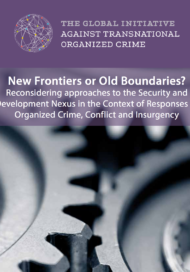Posted on 20 Dec 2014
The international drug control system is stoking a global crisis of inequitable access to controlled medicines. Of the global population, an estimated 5.5 billion have poor to nonexistent access to opioid analgesics, in particular morphine, resulting in the avoidable pain and suffering of people around the world. At the last estimate, 92 percent of the world’s supply of morphine was consumed by just 17 percent of the global population, that consumption primarily concentrated in the global north.
Terminal cancer patients, end-stage AIDS patients, and women in labor suffering from uncontrolled pain are among the key impacted groups, with the World Health Organization (WHO) estimating that tens of millions suffer from unrelieved pain annually due to a lack of access to controlled medicines. In addition, only a fraction of people globally who inject drugs are able to access controlled medicines for treating opioid dependence.
Under international drug control law and international human rights law, States have an obligation to ensure controlled medicines are made available to their populations; any restriction of access constitutes a violation of the right to health. Though a number of factors impose barriers to access, including weak healthcare systems and the lack of training of clinicians working on the ground, the international drug control system has been responsible for perpetuating the continual undersupply of controlled
medicines.



